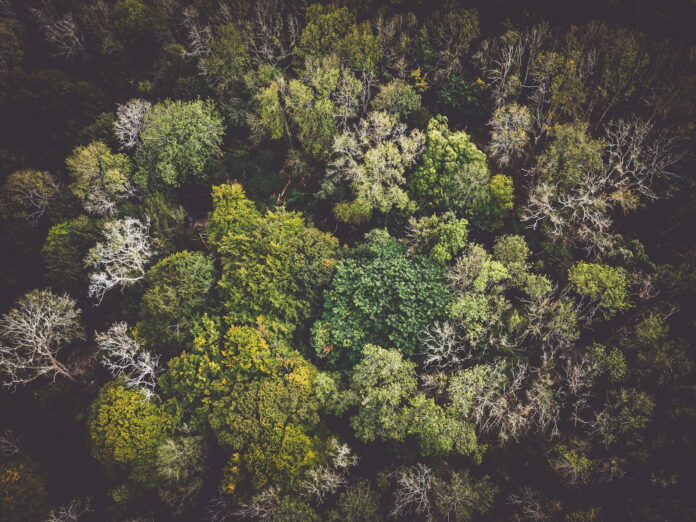In the global effort to preserve forests and combat climate change, the ancient wisdom of indigenous populations has emerged as an invaluable resource. Indigenous peoples have nurtured and maintained complex ecosystems for millennia through practices honed over generations.
Indigenous Insights on Ecosystems
Indigenous communities possess an intimate understanding of their local ecosystems forged through centuries of direct interaction and reliance on their natural surroundings. They view themselves as an integral part of the ecosystem, not separate from it, leading to a holistic approach to environmental stewardship. This insight is characterized by a deep knowledge of the flora and fauna, understanding the seasonal cycles, and recognizing the subtle signals that precede environmental changes. Their traditional ecological knowledge, passed down orally through generations, includes sophisticated land management practices that enhance biodiversity and promote ecosystem resilience.
Indigenous insights offer valuable information about sustainable resource use. For instance, many native communities practice rotational farming, fishing, and hunting methods that allow for natural regeneration and prevent depletion. They have also developed intricate polyculture systems, which mimic natural forest conditions and create a harmonious balance between human needs and the health of the ecosystem. These approaches demonstrate an empirical understanding of the interdependent relationships between species and their habitats, emphasizing conservation and sustainable use as inherent components of their culture.
The wisdom of these communities in observing and interpreting environmental indicators is unparalleled. Indigenous peoples can often predict weather patterns, identify the health of ecosystems, and take preemptive measures to mitigate potential issues based on subtle cues from the environment. This level of attunement with nature is a stark contrast to the often fragmented scientific understanding of ecosystems, which sometimes overlooks the complexity of natural processes and the value of experiential knowledge.
Traditional Knowledge in Conservation
Traditional knowledge encompasses the practices, beliefs, and understandings of indigenous peoples concerning the biodiversity of their lands and the environmental processes at work. This knowledge base, while sometimes undervalued in mainstream conservation tactics, has proven its merit in maintaining ecological balance and fostering biodiversity. Efforts to integrate traditional knowledge into conservation strategies have shown promise in creating more effective and sustainable outcomes. By acknowledging the depth of indigenous wisdom, conservationists can implement practices that are more tailored to the specific needs of an ecosystem.
One of the cornerstones of traditional knowledge in conservation is the use of fire as a land management tool. Indigenous peoples, such as the Aboriginal communities in Australia, use controlled burns to clear underbrush, promote the growth of certain plant species, and prevent larger, more destructive wildfires. This ancient practice, grounded in a profound understanding of local ecosystems, exemplifies the sophisticated land stewardship that indigenous wisdom can contribute to modern conservation efforts.
Additionally, traditional knowledge has played a critical role in the identification and preservation of medicinal plants, many of which are found in forests. Indigenous peoples’ expertise in the medicinal properties of plants not only contributes to the well-being of their communities but also offers valuable insights for pharmaceutical research. The protection of these plants and their habitats is thus a shared interest between indigenous communities and global health initiatives, underlining the importance of integrating traditional knowledge into broader conservation strategies.
Collaborating with Native Communities
Collaboration with native communities is essential for the successful preservation of forests. Such partnerships respect the sovereignty and rights of indigenous peoples while acknowledging their role as custodians of the land. Collaborative efforts can help bridge the gap between traditional knowledge and scientific approaches, leading to more comprehensive and culturally sensitive conservation strategies. The inclusion of indigenous voices in decision-making processes ensures that conservation measures align with the needs and wisdom of those who know the land best.
In many regions, co-management agreements between governments and indigenous communities have led to the establishment of protected areas that are jointly overseen. These agreements empower indigenous peoples to continue their sustainable management practices while also contributing to global conservation goals. For example, in the Brazilian Amazon, territories managed by indigenous peoples have significantly lower rates of deforestation compared to other areas. This success is a testament to the efficacy of blending indigenous knowledge with formal conservation efforts.
Equipping indigenous communities with legal rights to their ancestral lands is a crucial step in preserving forests. Land tenure security enables indigenous peoples to safeguard their territories from external pressures such as logging, mining, and agriculture expansion. International initiatives, such as the United Nations Declaration on the Rights of Indigenous Peoples, support these rights and highlight the importance of indigenous leadership in environmental governance. By upholding these rights and providing platforms for knowledge exchange, the global community can ensure that indigenous wisdom continues to inform and enhance forest preservation efforts.
The treasure trove of indigenous wisdom offers key insights into the sustainable management and preservation of forests. Indigenous communities, with their deep-rooted understanding of ecosystems, possess invaluable knowledge that can guide and enrich contemporary conservation practices. By fostering genuine collaboration with native communities and integrating traditional wisdom into environmental strategies, we can create a more effective and respectful approach to forest preservation. Recognizing the critical role of indigenous peoples in environmental stewardship is not only a moral imperative but also a practical necessity for achieving a harmonious and sustainable relationship with our planet’s precious forest resources.
